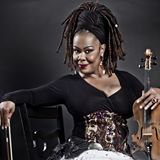|
Pro Sound News Magazine talking about Danny Leake life and work!
BY CLIVE YOUNG ⋅ 8 HOURS AGO
Chicago, IL (May 1, 2020)—Noted studio and live engineer Danny Leake died Wednesday, April 27, bringing to an end a career that saw him work with some of the biggest names in music over a 50+ year career. While known for studio work that led to six Grammy nominations for engineering and mastering, Leake was equally adept in a live setting, working as Stevie Wonder’s FOH engineer for 28 years. Over the course of his career, he worked with the likes of Janet Jackson, Diana Ross, Kanye West, The Police, Willie Nelson, Johnny Gill, Brian McKnight, Hank Williams, Jr., Natalie Cole, Candlebox, Lupe Fiasco, Natalie Cole and dozens more, bringing a keen ear and thoughtful perfectionism to his work. Felled by a heart attack while enroute to a dialysis appointment, Leake was 69.
Born in Chicago, Leake was occasionally working as a session musician when he graduated from Lane Tech High School in 1969, but was already moving towards an interest in audio engineering. As he recounted to Pro Sound News in 2007, “I played guitar for the longest time, since ’68, went out on the road with the Five Stairsteps, played with them, and I really got fascinated in the studio with the machines, the playback and everything. There weren’t really any black engineers in Chicago floating around at that time, so I’d say, ‘hey, how do you get into that?’ Everybody would laugh and walk away, and I’m like, ‘damn, what’s so funny?’ [laughs]
“So I basically read books, got drafted, went into the service, put a band together while I was over there and actually sold it to EMI Records. I forged a pass, told them I’d come from Chicago, Illinois when really I was just driving in from France, but we sold that stuff, and they gave me access to Abbey Road Studios and stuff, so I used to go just hang out with cats. When I came back to Chicago, I figured I would get a job as an assistant engineer or something like that, but that didn’t happen, so I just kept studying.”
Back in Chicago after an honorable discharge, Leake attended DePaul University and Roosevelt University, earning a BA in Music and Audio Engineering while also making use of what he’d learned overseas: “One day, a cat asked me to help him out at the studio and I told him, ‘yeah, I can help you out, but we really have to go someplace else that has this format to mix on.’ When we got there, I wired up all the stuff like I had picked up in England and the studio owner was impressed, so he offered me a job. He didn’t offer me any money [cracks up] but he gave me the keys—which was even better!
Making a name for himself, in 1979, he moved on to Chicago’s Universal Recording Corporation, where he worked for 11 years, engineering in every genre and media that the studio served. “I worked my way up to the chief engineer of that joint, cutting thrash metal records in the middle of the night, cutting [advertising] spots during the day,” he recalled.
During that time, he garnered production credits with The Dells, Tom Waits, The Chi-Lites, Eddie Harris and dozens of others, while some efforts, such as recording The Police in 1984, were under the radar. “They were touring, but I guess Sting and everybody else wasn’t happy with what they were doing live, so they actually set up the entire live show—monitor boards, the whole trip—in my studio at Universal Recording, which held 150 musicians. I remember I used a second studio to sub a lot of Stewart Copeland’s drums down. Over a two-day period, we recorded a ton of 24 tracks, 48 tracks, all of that stuff. I always wondered whatever happened with that—and last year, I bought a DVD of a show they did in Atlanta [2005’s Synchronicity Concert]. The show was them on stage, and all of a sudden they went into this big video, esoteric thing with colors floating around and I recognized the tracks I cut. Oh, okay! Did I get credit? No [laughs], but that’s part of the game.”
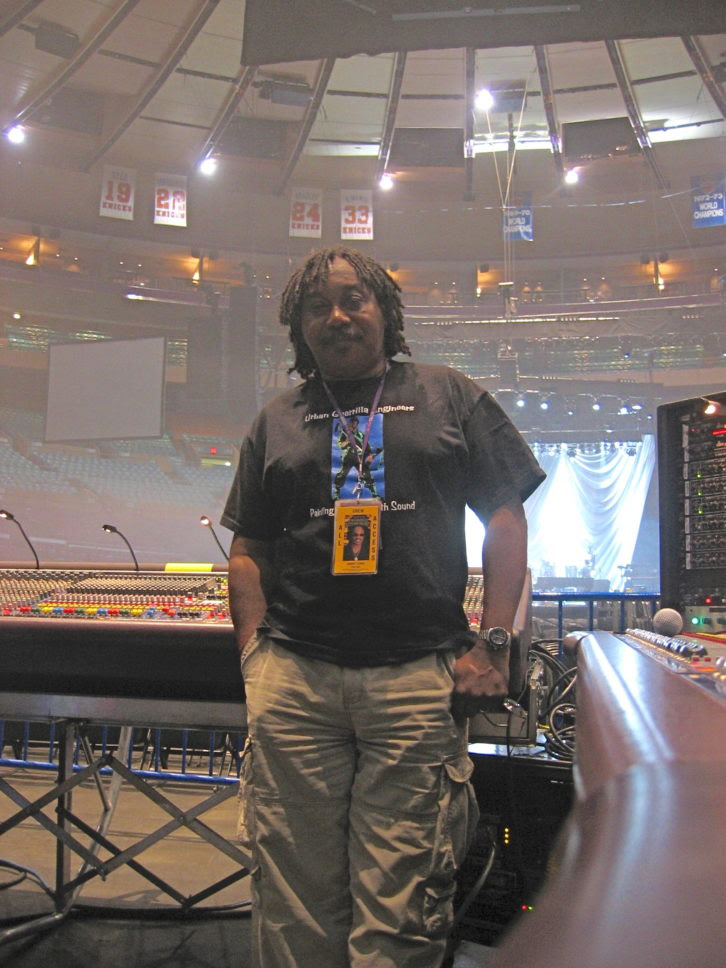 Danny Leake at the FOH position inside Madison Square Garden. Danny Leake at the FOH position inside Madison Square Garden.
Becoming an independent engineer in the early Nineties, Leake moved into the live sound world with a true baptism by fire moment. Having worked with Johnny Gill on some of the early hits that established the former New Edition singer as a solo artist, Leake was asked if he’d mix FOH for Gill in Japan.
He recalled, “I thought hey, how hard can it be? Big time engineer, right? Well, the first gig was at the Tokyo Dome. [laughs] It was a festival with Hall and Oates, the Doobie Brothers, Sheila E, all these cats, so there were 63,000 people, maybe 200 Clair S-4s up in the air. I’d never seen a speaker that big in my life. The audio guys were talking about things I had no idea what they were talking about—but everybody thought I was the pro because I brought my own gear! But I always bring my own gear, so I was like, what did I get myself into?! We did the show and to my ears, to my way of thinking, I was, God, this was horrible. I was ready to say ‘guys, you don’t have to pay me, I’m really sorry’ and they were ‘man, that was the greatest thing we ever heard!’ And I’m like, oh…it was?
“One thing that did happen though—that show, when they said ‘Johnny Gill’ and the whole place started yelling, they hit the first note and the joint went crazy. I got addicted to the audience. I had never experienced that before—63,000 people all getting their vibe through me and nobody’s remixing me. Yeah…I told him, whenever you go out again, call me; I’d like to do that.”
Garnering studio credits with the likes of Kurt Elling, Ramsey Lewis & Nancy Wilson, Dennis DeYoung, Michelle Williams and others over the next 30 years, Leake founded his Urban Guerilla Engineering boutique mixing and mastering studio in Chicago. Additionally, he was a multi-term president of EARS (Engineering and Recording Society of Chicago), mentored dozens of working engineers in the region, was a board member of SPARS, and was also a member and one-time trustee of the Recording Academy, writing proposals that helped lead to the Engineering, Mastering, and Remix Grammy Awards.
Despite that success in recording, he was often on the road, mixing tours for Diana Ross, New Edition, Bobby Brown, Dennis DeYoung, Aretha Franklin, Bell Biv Devoe and most notably, for Stevie Wonder, helming the house desk for hundreds of shows across all of Wonder’s tours since 1992.
In the live realm, Leake brought the meticulousness and insight he’d learned in the studio to the road, carefully placing microphones onstage himself—much to some monitor engineers’ irritation—and bringing along studio tools that were considered esoteric in the live realm. “I was probably the only guy on the planet that was traveling with a Massenburg Equalizer in my live rig,” he mused of his early days mixing shows.
Despite his willingness to bring technology to bear in a live setting, Leake had strong opinions on the subject, going so far as to note on his website, “Music should never become a slave to the technology.” Instead, he always aimed to ensure that music lovers, whether listening at home or in the middle of a packed arena, were focused on the music, and that philosophy was at the heart of every mix he created. As he told PSN while on tour with Stevie Wonder, “I have a theory that people don’t necessarily want to hear the record. They want to hear something bigger than that; if they wanted to hear the record, they’d stay home.”
Danny Leake is remembered by his wife of 24 years, Fran Allen-Leake, owner of LJect Productions; children; and grandchildren. |
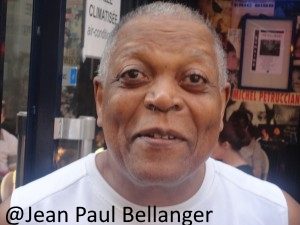


















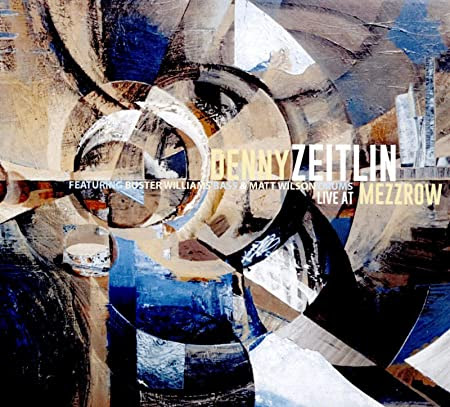





 Guitarist and composer, Albare was born in Morocco and grew up in Israel and France. Although he joined at age 8 the Music Conservatory in his hometown in Israel for 2 years, his musical development was completely self-taught. These days, as Albare has lost his central vision faculties due to an genetic illness, his playing is completely by ear.
Guitarist and composer, Albare was born in Morocco and grew up in Israel and France. Although he joined at age 8 the Music Conservatory in his hometown in Israel for 2 years, his musical development was completely self-taught. These days, as Albare has lost his central vision faculties due to an genetic illness, his playing is completely by ear.


 Here’s how it works: Simply sell access to your event and your customers are instantly provided a secure link to a pre-event screen. Once your event goes live, customers enter your stream, and get to enjoy your event from the comfort of their own home!
Here’s how it works: Simply sell access to your event and your customers are instantly provided a secure link to a pre-event screen. Once your event goes live, customers enter your stream, and get to enjoy your event from the comfort of their own home! FOR YOUR CONSIDERATION
FOR YOUR CONSIDERATION


 What The Press Is Saying Aout
What The Press Is Saying Aout























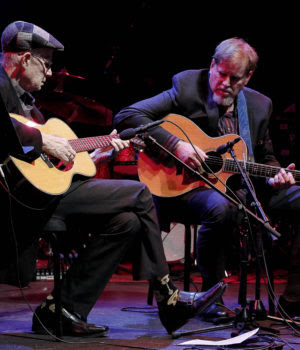
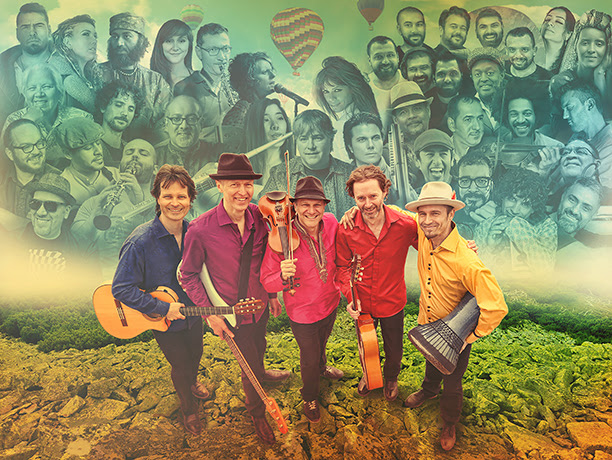



![["Arkbyte"]](https://ci3.googleusercontent.com/proxy/4YEr_0wUfHIanqeHZz4CGfoanKfHapXieZKYmRJljR59sbUapI8ToBY08YyeEqce6WmcaX_h6krPyLugXjwurdQZ60-Q2LGi0XURC6qre3PXO43NqSnLMEbdoauyHoHKzo1fz4ifPJ4Khy9gJj4XRRMshhN--3RCT8SvdlW5I6PEyZ56Ft7WPlS5HC-u_b189NfuyGfKss4geWjmejMXGHaIYtwnK616L1enmQ4-7_7W-pa5vy4LTCE9E2IRY4KeCZhxiEgaftYlU1Tm7Rtk4KGlhu1C7RHtxeJoU385n9rHhbpbal4AR-SLz-M81K5yFkhmONKA2ER0wwralPrV-qRKuV41husH6NdC4B1ep00xqkOZQYs9P2p1qTFRM88EvKHrdU76m78n2Y3Sx-rD0SLaFApG1-VH-vTQ0tDE1HnfP2BqbWwSBcU08D39AjoD008jVH1snVnhzAGQQQy_=s0-d-e1-ft#https://img-cache.net/im/1690285/7a4ea07871823f37e87a33e16a76571fa92d73ac570c5863ea0a0cfd7f09e81c.gif?e=BZrnPTJuIvAwm23DFRGdieuekf6kSHKjhnwMFC1D5tuDYX2YcWAFl1OB4LqGKJ57fXKD3OkEmiJQ7T3aYAPz7FTHHhiNg9vPvXqVbrWcuWzxZmZU5-jFwpSHGefibKa6PLpZwnaXOPl3W8H6Jp7_76TgaYaAmWv2UlAmVftNTCki5cZn5xTkSfbfeJ1ITEOS3q8Hg4ctS-MU3-qEV5xM8lTeyp3HY1psDHg)




































































 Artist: DIANE SCHUUR
Artist: DIANE SCHUUR

 My album can be heard at the following private listening link:
My album can be heard at the following private listening link: Don Van Vliet (Captain Beefheart) and Gary Lucas in Lucas’s West Village NYC apt. July ’80 photo by Dali Declair painting in background by Don Van Viet
Don Van Vliet (Captain Beefheart) and Gary Lucas in Lucas’s West Village NYC apt. July ’80 photo by Dali Declair painting in background by Don Van Viet















 Powerhouse recording artist Valerie Ghent is a multi-talented singer, songwriter, musician and producer from New York City. An outstanding live performer, Valerie weaves together blues, soul and jazz into a breathtaking tapestry of “soul-stirring, uplifting songs full of vitality and joy.” Longtime keyboardist/ vocalist/engineer with music royalty Ashford & Simpson, Valerie toured with Debbie Harry (Blondie) and performed/recorded with legendary artists including Dr. Maya Angelou, Nina Simone, Roberta Flack and Billy Preston. As solo artist Valerie has released five albums, including Day to Day Dream, which launched her #1 hit song, Love Enough for a Lifetime. Her album Velours was named Soul Tracks Top 50 Albums of 2016 with hit song New York City Streets, hailed by critics as a “New Anthem for NYC”. Valerie tours and records in France several times each year, her popularity there resulting in The French Sessions, her first album on a French label. Valerie’s newest single Feelin’ Alright hit #1 on Jazz Radio France.
Powerhouse recording artist Valerie Ghent is a multi-talented singer, songwriter, musician and producer from New York City. An outstanding live performer, Valerie weaves together blues, soul and jazz into a breathtaking tapestry of “soul-stirring, uplifting songs full of vitality and joy.” Longtime keyboardist/ vocalist/engineer with music royalty Ashford & Simpson, Valerie toured with Debbie Harry (Blondie) and performed/recorded with legendary artists including Dr. Maya Angelou, Nina Simone, Roberta Flack and Billy Preston. As solo artist Valerie has released five albums, including Day to Day Dream, which launched her #1 hit song, Love Enough for a Lifetime. Her album Velours was named Soul Tracks Top 50 Albums of 2016 with hit song New York City Streets, hailed by critics as a “New Anthem for NYC”. Valerie tours and records in France several times each year, her popularity there resulting in The French Sessions, her first album on a French label. Valerie’s newest single Feelin’ Alright hit #1 on Jazz Radio France.  sician and dan-tranh (Vietnamese zither) player Tri Nguyen was born in Vietnam and currently lives in Paris, France. As one of the last musicians of the authentic Vietnamese Ancestral School, Tri feverishly defends the old playing techniques on the dan-tranh, techniques that are now endangered. His training as a classical pianist from an early age alongside his solid background in traditional Vietnamese music enable Nguyen to fusion the dan-tranh multi-centennial repertoire with music and artists from around the globe: a perfect description of Vietnamese culture into the language of the World. Tri has released 4 albums and 4 singles/EP; “Consonnances”, his first album, and “Beyond Borders”, his second album, both received Gold Medals at the Global Music Awards USA in World Category in 2015 and 2017. “Beyond Borders” was nominated for the finals at the Independent Music Awards (IMA) in NYC in 2018 and his most recent single “Walking” in collaboration with Canadian producer Graeme Drum won the World Beat Award at the IMA in 2020. Since 2017, Tri is a Celebrated Judge at the Global Music Awards.
sician and dan-tranh (Vietnamese zither) player Tri Nguyen was born in Vietnam and currently lives in Paris, France. As one of the last musicians of the authentic Vietnamese Ancestral School, Tri feverishly defends the old playing techniques on the dan-tranh, techniques that are now endangered. His training as a classical pianist from an early age alongside his solid background in traditional Vietnamese music enable Nguyen to fusion the dan-tranh multi-centennial repertoire with music and artists from around the globe: a perfect description of Vietnamese culture into the language of the World. Tri has released 4 albums and 4 singles/EP; “Consonnances”, his first album, and “Beyond Borders”, his second album, both received Gold Medals at the Global Music Awards USA in World Category in 2015 and 2017. “Beyond Borders” was nominated for the finals at the Independent Music Awards (IMA) in NYC in 2018 and his most recent single “Walking” in collaboration with Canadian producer Graeme Drum won the World Beat Award at the IMA in 2020. Since 2017, Tri is a Celebrated Judge at the Global Music Awards.  Emmanuel Ghent (1925-2003) was a pioneering composer of electronic music, and a psychoanalyst, teacher and innovator. Born in Montreal, Canada, Ghent emigrated to the United States. During the 1960s Ghent was well-known for his multi-tempo instrumental music, and with a Guggenheim fellowship began a ten year residence at Bell Labs, composing many pieces including Phosphones (1971), the first performance of synchronized music, lighting and dance. Ghent received numerous commissions, as well as grants from the National Endowment for the Arts and New York State Arts Council, and collaborated with Ornette Coleman. His music is published by Oxford University Press, and recorded on various labels. In 1999 Ghent and his daughter Valerie Ghent recorded and released Songs for Children. Ghent’s music is archived at the New York Public Library for the Performing Arts at Lincoln Center.
Emmanuel Ghent (1925-2003) was a pioneering composer of electronic music, and a psychoanalyst, teacher and innovator. Born in Montreal, Canada, Ghent emigrated to the United States. During the 1960s Ghent was well-known for his multi-tempo instrumental music, and with a Guggenheim fellowship began a ten year residence at Bell Labs, composing many pieces including Phosphones (1971), the first performance of synchronized music, lighting and dance. Ghent received numerous commissions, as well as grants from the National Endowment for the Arts and New York State Arts Council, and collaborated with Ornette Coleman. His music is published by Oxford University Press, and recorded on various labels. In 1999 Ghent and his daughter Valerie Ghent recorded and released Songs for Children. Ghent’s music is archived at the New York Public Library for the Performing Arts at Lincoln Center. Powerhouse recording artist Valerie Ghent is a multi-talented singer, songwriter, musician and producer from New York City. An outstanding live performer, Valerie weaves together blues, soul and jazz into a breathtaking tapestry of “soul-stirring, uplifting songs full of vitality and joy.” Longtime keyboardist/ vocalist/engineer with music royalty Ashford & Simpson, Valerie toured with Debbie Harry (Blondie) and performed/recorded with legendary artists including Dr. Maya Angelou, Nina Simone, Roberta Flack and Billy Preston. As solo artist Valerie has released five albums, including Day to Day Dream, which launched her #1 hit song, Love Enough for a Lifetime. Her album Velours was named Soul Tracks Top 50 Albums of 2016 with hit song New York City Streets, hailed by critics as a “New Anthem for NYC”. Valerie tours and records in France several times each year, her popularity there resulting in The French Sessions, her first album on a French label. Valerie’s newest single Feelin’ Alright hit #1 on Jazz Radio France.
Powerhouse recording artist Valerie Ghent is a multi-talented singer, songwriter, musician and producer from New York City. An outstanding live performer, Valerie weaves together blues, soul and jazz into a breathtaking tapestry of “soul-stirring, uplifting songs full of vitality and joy.” Longtime keyboardist/ vocalist/engineer with music royalty Ashford & Simpson, Valerie toured with Debbie Harry (Blondie) and performed/recorded with legendary artists including Dr. Maya Angelou, Nina Simone, Roberta Flack and Billy Preston. As solo artist Valerie has released five albums, including Day to Day Dream, which launched her #1 hit song, Love Enough for a Lifetime. Her album Velours was named Soul Tracks Top 50 Albums of 2016 with hit song New York City Streets, hailed by critics as a “New Anthem for NYC”. Valerie tours and records in France several times each year, her popularity there resulting in The French Sessions, her first album on a French label. Valerie’s newest single Feelin’ Alright hit #1 on Jazz Radio France. 

 Hundreds of Albums-CDs-DVDs
Hundreds of Albums-CDs-DVDs






















 About Jim Robitaille Trio:
About Jim Robitaille Trio:











 Joel Futterman Piano Indian Flute
Joel Futterman Piano Indian Flute

 Photo by Georgette Gale
Photo by Georgette Gale  photo by Michael Weintrob
photo by Michael Weintrob




































































 (Photo Courtesy of The Family of Annie Ross)
(Photo Courtesy of The Family of Annie Ross)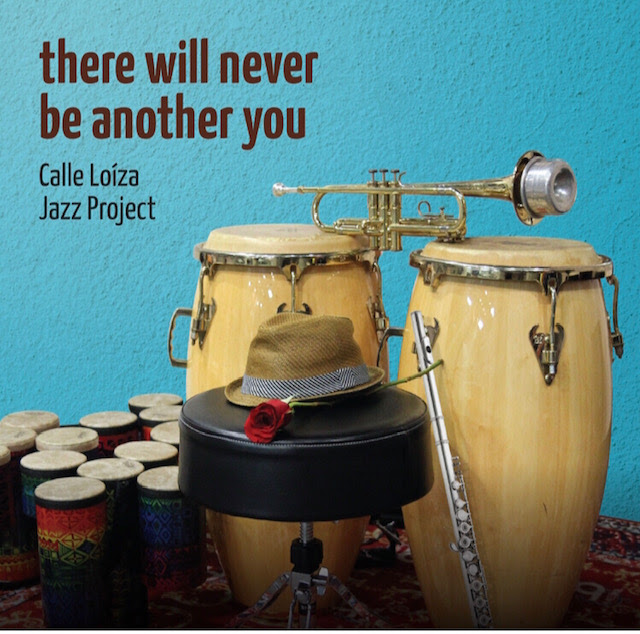
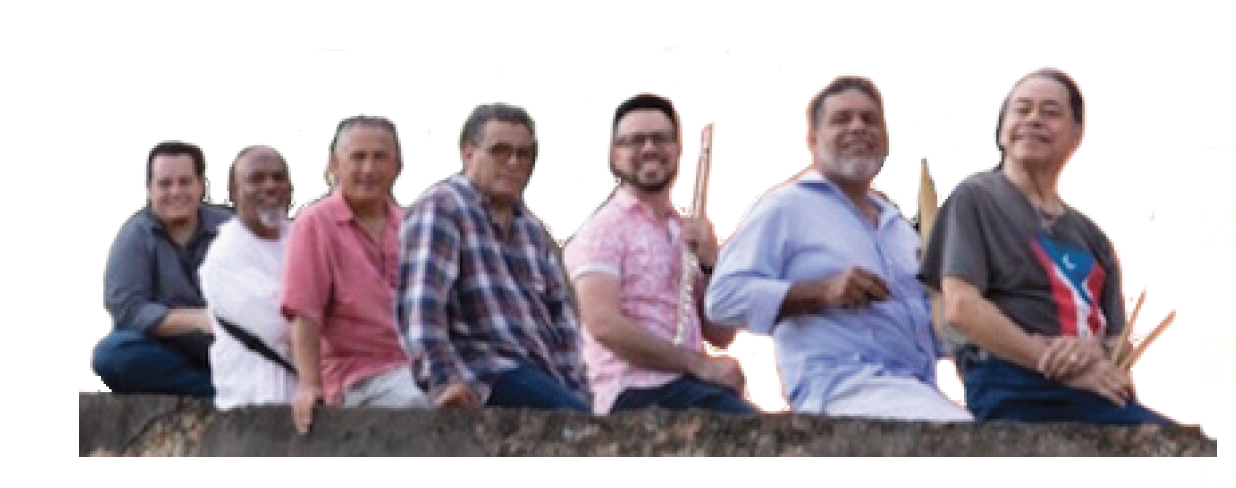
























































 drummers. He has recorded over six hundred albums, including seminal dates with Miles Davis, Herbie Hancock, Stan Getz, Joe Zawinul, Sam Rivers, Pharoah Sanders, John Scofield, Lee Konitz, Hank Jones, Pat Martino, Charles Lloyd, Dave Liebman, Michael Brecker, Joe Lovano, and Dave Douglas.
drummers. He has recorded over six hundred albums, including seminal dates with Miles Davis, Herbie Hancock, Stan Getz, Joe Zawinul, Sam Rivers, Pharoah Sanders, John Scofield, Lee Konitz, Hank Jones, Pat Martino, Charles Lloyd, Dave Liebman, Michael Brecker, Joe Lovano, and Dave Douglas.














































































 of the most original bandleaders ever. Charles Mingus was a genius composer, bassist, and bandleader whose music is still appreciated and growing in its relevance. His compositions have endured and continue to drive passionate responses from his listeners because they deeply reflect a wide range of human conditions.During the two-hour Zoom presentation, Newton will include insights passed down from his mentors Buddy Collette, Red Callender, and Dannie Richmond, and draw upon his direct experience as a member of the
of the most original bandleaders ever. Charles Mingus was a genius composer, bassist, and bandleader whose music is still appreciated and growing in its relevance. His compositions have endured and continue to drive passionate responses from his listeners because they deeply reflect a wide range of human conditions.During the two-hour Zoom presentation, Newton will include insights passed down from his mentors Buddy Collette, Red Callender, and Dannie Richmond, and draw upon his direct experience as a member of the  Mingus Dynasty band in the 1980s. This band included Craig Handy, who will be a special guest during this presentation. Newton will include a unique oral history that cannot be found in books. He will also cover Mingus’s connection to Duke Ellington, Billy Strayhorn, Charles Christopher Parker (Charlie Parker), and others. Mingus’s critical essay, “Let My Children Hear Music,” will be discussed and be posted on our website prior so that people can read it before the session. He will conclude with original Mingus orchestral compositions performed by the original Mingus Big Band.The presentation will use audio recordings, DVDs, and video clips from different decades, and Nesuhi Ertegun’s (Atlantic Records) interview of Mingus.
Mingus Dynasty band in the 1980s. This band included Craig Handy, who will be a special guest during this presentation. Newton will include a unique oral history that cannot be found in books. He will also cover Mingus’s connection to Duke Ellington, Billy Strayhorn, Charles Christopher Parker (Charlie Parker), and others. Mingus’s critical essay, “Let My Children Hear Music,” will be discussed and be posted on our website prior so that people can read it before the session. He will conclude with original Mingus orchestral compositions performed by the original Mingus Big Band.The presentation will use audio recordings, DVDs, and video clips from different decades, and Nesuhi Ertegun’s (Atlantic Records) interview of Mingus. Newton is not only a well-known musician and composer but also an educator at the highest level. He is a distinguished Professor Emeritus in the Composition Global Jazz Studies department at the Herb Alpert School of Music at the University of California at Los Angeles (UCLA). Please visit
Newton is not only a well-known musician and composer but also an educator at the highest level. He is a distinguished Professor Emeritus in the Composition Global Jazz Studies department at the Herb Alpert School of Music at the University of California at Los Angeles (UCLA). Please visit 

 BENNY RUBIN JR. “KNOW SAY OR SEE”
BENNY RUBIN JR. “KNOW SAY OR SEE” 
















 About Sam Newsome:
About Sam Newsome:














 (our 5-minute feature starts at 25:30):
(our 5-minute feature starts at 25:30): “Love Avalanche” with Sharon Isbin & Ayaan Ali Bangash from Strings for Peace, NPR Best of May All Songs Considered (our 5-minute feature starts at 25:26) – “I also love the dialogue back and forth between Sharon’s guitar and Ayaan’s sarod…It’s HIGHLY sensual, both in a spiritual way and in a kind of sexy way!”.— Tom Huizenga
“Love Avalanche” with Sharon Isbin & Ayaan Ali Bangash from Strings for Peace, NPR Best of May All Songs Considered (our 5-minute feature starts at 25:26) – “I also love the dialogue back and forth between Sharon’s guitar and Ayaan’s sarod…It’s HIGHLY sensual, both in a spiritual way and in a kind of sexy way!”.— Tom Huizenga











 LABEL: JAZZHEADS CATALOG #: JH1242
LABEL: JAZZHEADS CATALOG #: JH1242 Music While We’re Inside
Music While We’re Inside










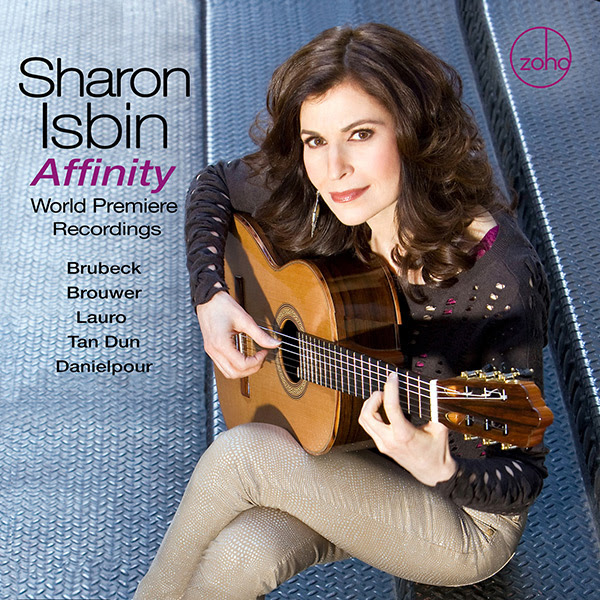


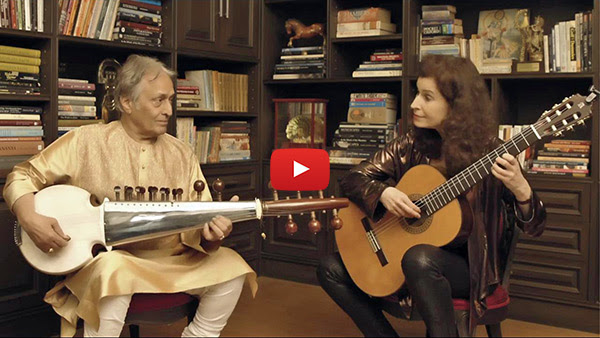


 Dave Stryker with Bob Mintzer and the WDR Big BandTitle: Blue SoulLabel: Strikezone Records 8820Artist’s Website:
Dave Stryker with Bob Mintzer and the WDR Big BandTitle: Blue SoulLabel: Strikezone Records 8820Artist’s Website: 




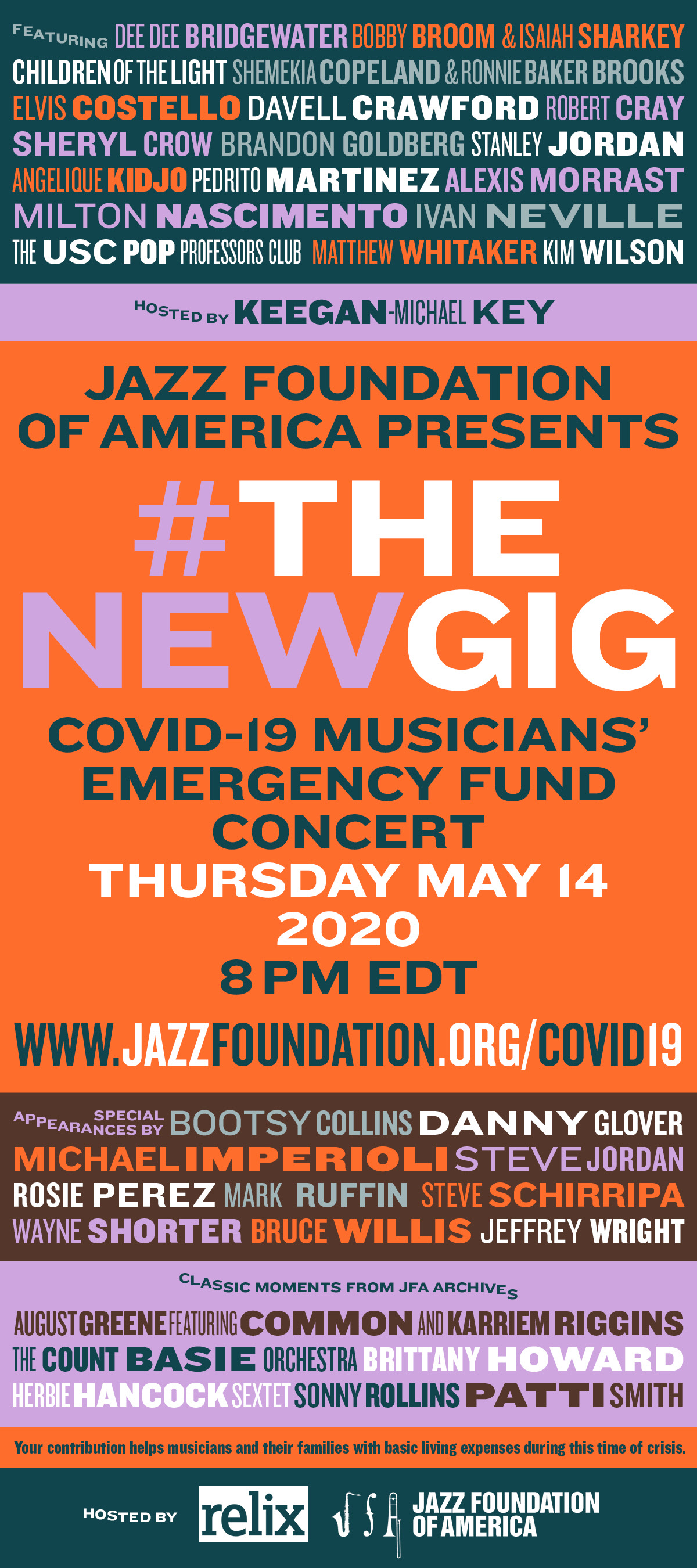












































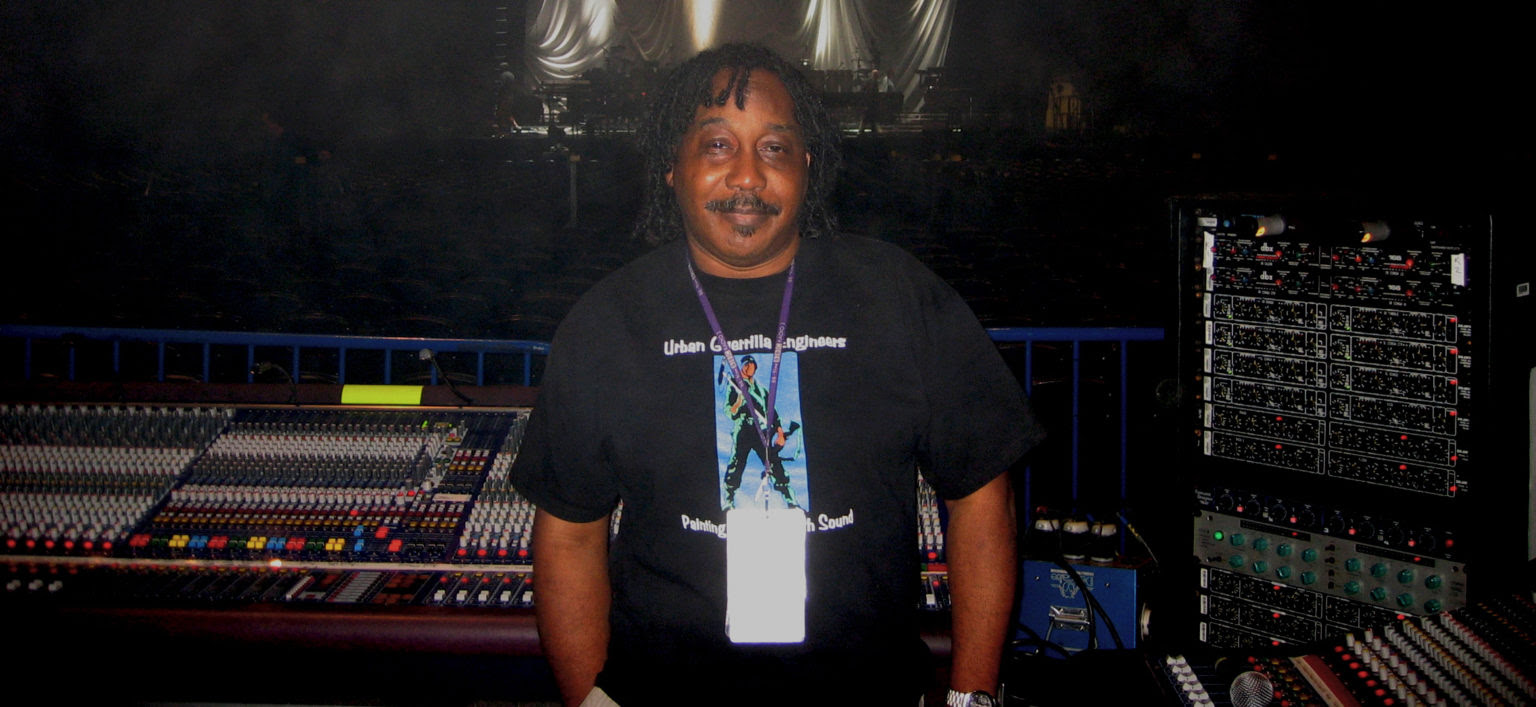
 Danny Leake at the FOH position inside Madison Square Garden.
Danny Leake at the FOH position inside Madison Square Garden. Mack Avenue Music Group Presents:
Mack Avenue Music Group Presents: 






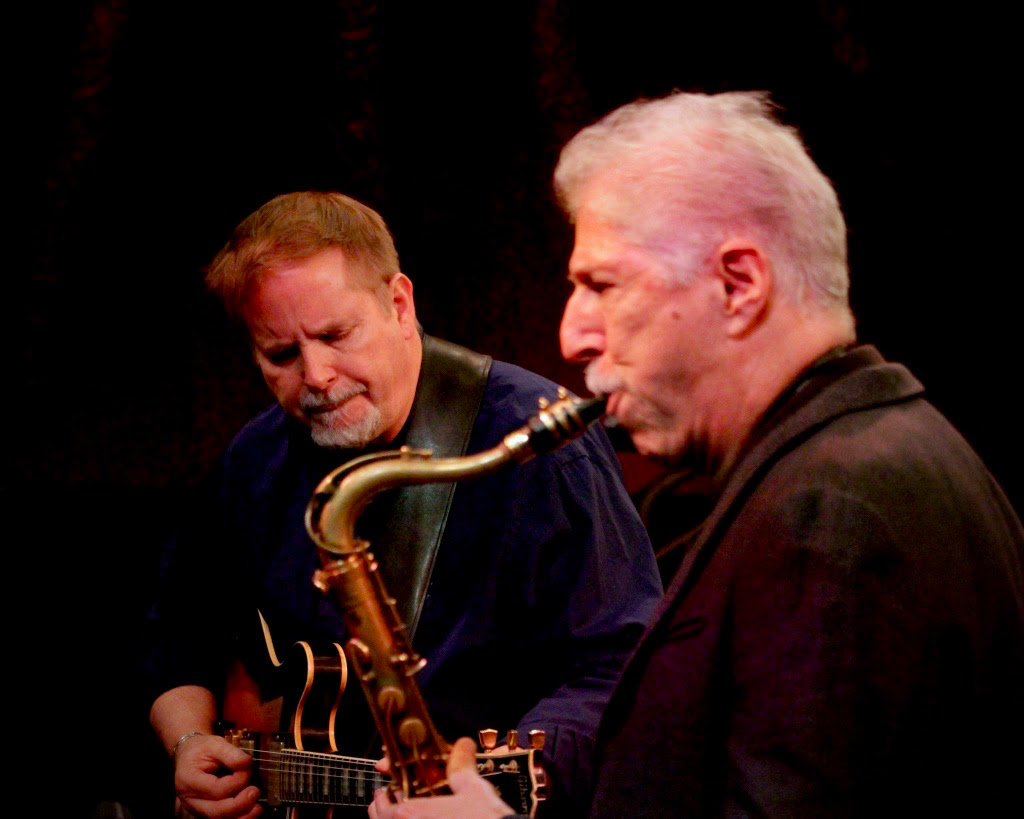






 NEW CD
NEW CD





